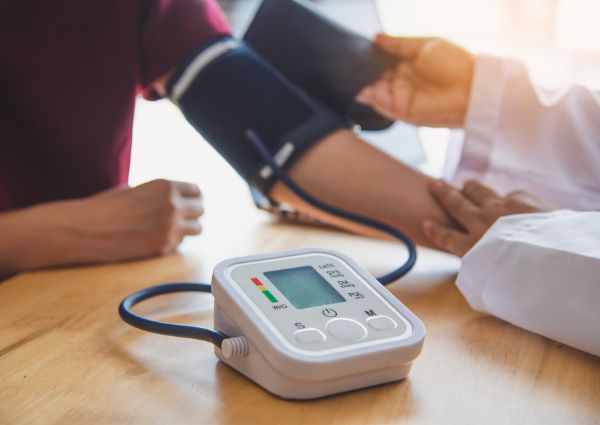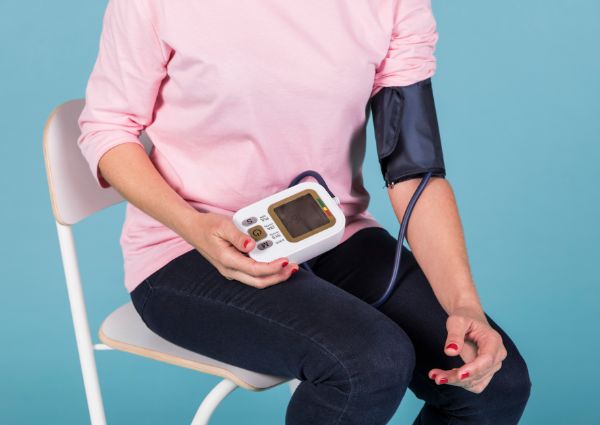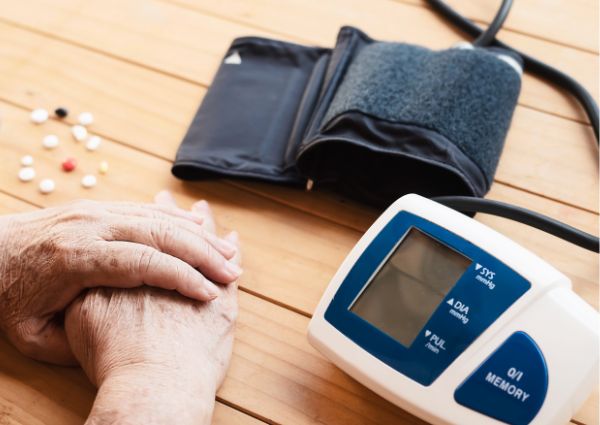ABPM Test in Delhi
The ABPM test in Delhi is done using a special device called an ambulatory blood pressure monitor. The device is worn on the body and records the blood pressure at regular intervals.
The test is usually done for 24 hours or more. The blood pressure readings are then analyzed to see if there are any patterns.The test is used to diagnose high blood pressure. It can also be used to find out if treatment for high blood pressure is working.
Get in Touch
What is high blood pressure?
High blood pressure (hypertension) is a condition in which the force of the blood against the walls of the arteries is too high.
- Blood pressure is measured in millimeters of mercury (mmHg).
- Normal blood pressure is less than 120/80 mmHg.
- High blood pressure is 140/90 mmHg or higher.
- If your blood pressure is higher than 140/90 mmHg, you have high blood pressure.
What are the symptoms of high blood pressure?
Most people with high blood pressure do not have any symptoms. This is why it is often called the “silent killer.”
If your blood pressure is very high, you may have headaches, shortness of breath, or nosebleeds. But these signs and symptoms are not usually seen until the condition is severe.
What are the causes of high blood pressure?
The exact cause of high blood pressure is not known. But there are certain risk factors that can increase your chance of developing the condition.
Risk factors for high blood pressure include:
- Family history of high blood pressure
- Age
- Being overweight or obese
- Eating a lot of salt
- Not getting enough exercise
- Drinking too much alcohol
- Stress
- Smoking
If you have any of these risk factors, you should talk to your doctor about ways to lower your risk of developing high blood pressure.

What is ABPM?
ABPM is short for ambulatory blood pressure monitoring. This is a test used to measure your blood pressure over a period of time. It is done by wearing a small, portable device called a monitor. The monitor is usually worn for 24 hours. It takes your blood pressure at set intervals.
The ABPM test is used to find out if you have high blood pressure. It can also be used to find out if your blood pressure is getting better or worse. The test is also used to find out if your blood pressure medications are working.
If you have high blood pressure, the ABPM test can help your doctor find the best treatment for you.
How is ABPM performed?
Ambulatory blood pressure monitoring test is important for several reasons:
- ABPM, or ambulatory blood pressure monitoring, is a way to measure your blood pressure over the course of a day.To do this, you wear a special monitor that’s attached to a cuff on your arm. The monitor records your blood pressure at set intervals and stores the readings for later analysis.
ABPM can give your doctor a more complete picture of your blood pressure than a single reading taken at a doctor’s office. That’s because blood pressure can vary considerably from one moment to the next, and it may be higher when you’re at the doctor’s office than when you’re at home or work.
ABPM can also help your doctor find out if you have white coat hypertension, which is high blood pressure that’s only present when you’re at the doctor’s office or other medical setting.
If you have white coat hypertension, your blood pressure readings during ABPM may be normal or only slightly high.
ABPM is usually done over the course of 24 hours. However, in some cases, it may be done for a shorter period of time, such as 6 to 12 hours.
The monitor is small and can be worn on a belt or in a pocket. It’s connected to a cuff that’s placed on your upper arm.
Before the test begins, your doctor will explain how to use the monitor and how often you should take your blood pressure.
You’ll also be given a log to record your readings, along with any symptoms you’re experiencing, such as dizziness or headaches.
During the test, you’ll need to take your blood pressure readings at the times your doctor has specified.
When you’re done, you’ll return the monitor to your doctor, who will download the readings and analyze them.
Your doctor may also ask you to keep a diary of your activities during the test to see if there’s a correlation between your blood pressure and certain activities, such as exercise or stress.
ABPM is a safe and painless test that can give your doctor valuable information about your blood pressure.
Who can benefit from ABPM?

ABPM, or Ambulatory Blood Pressure Monitoring, is a non-invasive test that helps doctors to better understand a patient’s blood pressure. The test can be used to diagnose and manage hypertension, as well as to rule out other causes of high blood pressure.
ABPM can be used to evaluate:
-The effectiveness of blood pressure medications
-The need for additional blood pressure medications
-The cause of white coat hypertension
-The cause of masked hypertension
ABPM can also be used to help guide treatment decisions in patients with difficult-to-control hypertension. In addition, ABPM may be used to monitor the blood pressure of pregnant women and to assess the risk of preeclampsia.
ABPM is generally well-tolerated and is considered safe for most people. The most common side effect is discomfort from the cuff during the blood pressure readings.
What are the advantages of ABPM?
ABPM or Ambulatory Blood Pressure Monitoring is a device which is used to check your blood pressure. It is a non-invasive method which doesn’t require any special preparation. The device is usually worn for 24 hours and it takes blood pressure readings at regular intervals.
One of the main advantages of ABPM is that it can provide a more accurate picture of your blood pressure. This is because it takes multiple readings over a period of time, rather than just a single reading. This can be helpful if you have high blood pressure which fluctuates.
Another advantage of ABPM is that it is less likely to be affected by ‘white coat hypertension’. This is when blood pressure readings are higher than usual because of anxiety or stress. This can be a problem with traditional blood pressure monitors, but it is less of an issue with ABPM.
ABPM can also be used to monitor the effects of medication. This is because you can see how your blood pressure responds to different treatments over time. This information can be useful for your doctor in adjusting your medication.
Overall, ABPM is a useful tool for monitoring blood pressure. It can provide more accurate readings than traditional blood pressure monitors, and it can also be used to monitor the effects of medication.
Are there any risks associated with ABPM?
There are several risks associated with ABPM. First, the device may not be able to accurately measure blood pressure. Second, the device may not be able to properly attach to the skin. Third, the device may not be able to stay in place during the test. Fourth, the device may cause skin irritation. Fifth, the device may cause bruising. Sixth, the device may cause discomfort.
What is the cost of ABPM?
ABPM or Ambulatory Blood Pressure Monitoring is a non-invasive method of measuring your blood pressure. The device is usually worn for 24 hours during your normal activities. The device will take your blood pressure at regular intervals and will provide a detailed report of your blood pressure for the entire day.
ABPM is generally recommended for people who have been diagnosed with high blood pressure as it can provide a more accurate picture of your blood pressure. It can also be helpful for people who have been diagnosed with white coat hypertension, as it can help to rule out whether your blood pressure is actually high.
The cost of ABPM will vary depending on your health insurance coverage. If you do not have health insurance, the cost of the device and the test will be paid out of pocket. The cost of the device itself is usually around Rs 2500. The cost of the test will depend on the lab that you use and whether you have to pay for the visit to the lab separately.
Overall, the cost of ABPM is generally considered to be worth it as it can provide a more accurate picture of your blood pressure. If you have been diagnosed with high blood pressure, it is recommended that you talk to your doctor about whether ABPM is right for you.
Where can I get ABPM done?
ABPM, or ambulatory blood pressure monitoring, is a test used to measure your blood pressure throughout the day. During the test, you wear a small, portable device that takes your blood pressure at regular intervals.
ABPM is used to diagnose and manage high blood pressure, including hypertension. It can also be used to monitor the effectiveness of blood pressure medications.
If you have high blood pressure, your doctor may recommend ABPM to help determine whether your blood pressure is adequately controlled or to help find the cause of uncontrolled blood pressure.
ABPM may also be used to diagnose “white coat hypertension,” which is high blood pressure that occurs in a medical setting but not in day-to-day life.
If you have been diagnosed with high blood pressure, ABPM can help your doctor determine whether your blood pressure medications are working to control your blood pressure.
ABPM can also help your doctor find the cause of uncontrolled blood pressure. If your blood pressure is higher during certain activities, for example, your doctor may suspect a problem with your adrenal glands.
ABPM is a safe and painless test. The only side effects are occasional skin irritation from the cuff and temporary bruising from the needle used to insert the cuff’s sensor.
ABPM is usually done in a doctor’s office, but it can also be done at home. Home ABPM may be recommended if you have uncontrolled blood pressure and your doctor suspects that your blood pressure is higher at certain times of the day.
If you are considering home ABPM, be sure to talk to your doctor about the pros and cons. Home ABPM may not be covered by your health insurance.
ABPM is not right for everyone. If you have certain medical conditions, such as heart failure, ABPM may not be safe for you. Be sure to talk to your doctor about whether ABPM is right for you.
Why Choose Goodhealth21 Diagnostic ABPM Test In Delhi?

Abpm Test in Delhi – Cheap and Affordable Options
Do you know what ABPM is? Well, ABPM is short for Ambulatory Blood Pressure Monitoring. It is a non-invasive diagnostic test which is used to measure your blood pressure. The test is conducted over a period of 24 hours and it gives a more accurate picture of your blood pressure as compared to a regular blood pressure test.
If you have been advised by your doctor to undergo an ABPM test, then you must be wondering where you can get it done in Delhi. Don’t worry, we have got you covered. In this blog, we will tell you about some of the best and most affordable places in Delhi where you can get an ABPM test done.
Where to find the best testing options
When it comes to finding the best options for an ABPM test in Delhi, there are a few things to keep in mind. First, it is important to find a facility that is accredited by the National Board of Medical Examiners. This will ensure that the test is reliable and accurate. Additionally, it is important to find a facility that offers a variety of testing options. This will allow you to choose the best option for your needs.
One of the best places to find an ABPM test in Delhi is the National Institute of Pathology. This facility is accredited by the National Board of Medical Examiners and offers a variety of testing options. Additionally, the staff at this facility is experienced and knowledgeable. Another great option for an ABPM test in Delhi is the All India Institute of Medical Sciences. This facility is also accredited by the National Board of Medical Examiners and offers a variety of testing options. Additionally, the staff at this facility is experienced and knowledgeable.
When choosing a facility for an ABPM test in Delhi, it is important to consider the accreditation, the variety of testing options, and the experience of the staff. These factors will ensure that you receive accurate and reliable results.
What to expect from the testing process
3 Abpm Test in Delhi What to expect from the testing process?
ABPM or Ambulatory Blood Pressure Monitoring is a device that is used to measure your blood pressure over a period of time. The device is usually worn for 24 hours. During this time, it will take your blood pressure at regular intervals.
ABPM is used to diagnose high blood pressure. It can also be used to find out if your blood pressure is well controlled.
The test is usually done in two parts. In the first part, you will be asked to wear the device for a period of time. During this time, your blood pressure will be monitored. In the second part, you will be asked to take the device off and your blood pressure will be monitored again.
ABPM is a safe and painless test. There are no known side effects.
You should expect to spend about an hour at the testing center. You will be asked to arrive 15 minutes early to fill out paperwork. The actual test will take about 45 minutes.
During the test, you will be asked to sit in a chair or lie down. The device will be placed on your upper arm. It will be connected to a monitor. The monitor will record your blood pressure readings.
You will be asked to remain still during the test. You should not talk, move, or drink any liquids during the test.
After the test is over, you will be able to go about your normal activities. You should avoid strenuous activity for the rest of the day.
The results of the test will be available in 1-2 days. Your doctor will review the results and discuss them with you.
How to prepare for the test
ABPM stands for Ambulatory Blood Pressure Monitoring. It is a test which is used to check the blood pressure of a person over a period of time. The test is done by wearing a special device called an ABPM monitor. The monitor is attached to the person’s arm and it takes the blood pressure readings at regular intervals. The readings are then stored in a memory device which can be later downloaded onto a computer.
The ABPM test is usually done over a period of 24 hours. The person has to wear the monitor during this period and they can go about their normal activities. The monitor will take readings every 15 to 30 minutes. The person will also need to keep a diary of their activities during the test so that the doctor can see how their blood pressure responds to different activities.
The ABPM test is used to diagnose hypertension (high blood pressure) and to find out if the blood pressure is well controlled with medication. The test can also be used to find out if the person has white coat hypertension (high blood pressure that is only present when the person is seen by a doctor).
Preparing for the ABPM test is simple. The person should wear loose-fitting clothes so that the monitor can be easily attached to the arm. They should also avoid caffeine and alcohol for 24 hours before the test.
Tips for getting the most accurate results of ABPM Test in Delhi
If you’re scheduled for an ABPM test in Delhi, there are a few things you can do to ensure you get the most accurate results possible. Here are five tips:
- Avoid caffeine and alcohol for 24 hours before the test.
- Don’t smoke for at least four hours before the test.
- Be sure to empty your bladder before the test begins.
- during the test, try to relax and stay still as much as possible.
- After the test, avoid strenuous activity for the rest of the day.
FAQ
1. How do you sleep with a 24 hour blood pressure monitor?
Sleeping with a 24-hour blood pressure monitor can be a little tricky, but it’s important to get a good night’s rest to ensure accurate readings. Here are a few tips for sleeping with a 24-hour blood pressure monitor:
- Wear loose clothing
- Keep the monitor close
- Sleep on your back
- Avoid caffeine and alcohol
- Relax
Remember, the 24-hour blood pressure monitor is designed to be worn during your normal daily activities, including sleep. So, try to keep your routine as normal as possible to ensure accurate readings. If you have any concerns or questions, don’t hesitate to reach out to your healthcare provider or the provider of the blood pressure monitor.
2. How is the ABPM test performed?
During an Ambulatory Blood Pressure Monitoring test, a portable blood pressure monitor is attached to the patient’s arm, which takes readings at regular intervals over a 24-hour period. The patient goes about their normal daily activities, including sleeping, while wearing the monitor.
3. Is the ABPM test painful?
No, the Ambulatory Blood Pressure Monitoring test is not painful. The monitor is attached to the arm using a cuff, similar to a standard blood pressure cuff, and the patient may feel some mild discomfort or tightness during cuff inflation.
Give Us Your Feedback


